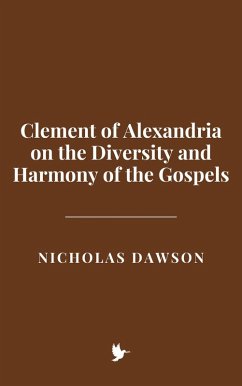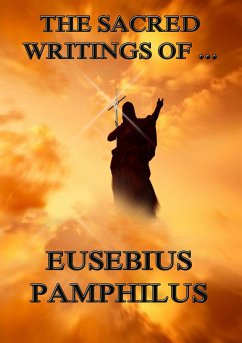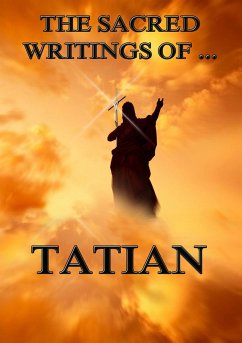
The Sacred Writings of Clement of Alexandria (eBook, ePUB)

PAYBACK Punkte
0 °P sammeln!
"The Sacred Writings Of ..." provides you with the essential works among the Early Christian writings. The volumes cover the beginning of Christianity until before the promulgation of the Nicene Creed at the First Council of Nicaea. This volume contains the following writings: The "Miscellanies" (Stromateis) and "The Tutor" (Paidagogos). The "Miscellanies" comprise seven entire books, of which the first four are earlier than "The Tutor". When he had finished this latter work he returned to the "Miscellanies", which he was never able to finish. The first pages of the work are now missing. What ...
"The Sacred Writings Of ..." provides you with the essential works among the Early Christian writings. The volumes cover the beginning of Christianity until before the promulgation of the Nicene Creed at the First Council of Nicaea. This volume contains the following writings: The "Miscellanies" (Stromateis) and "The Tutor" (Paidagogos). The "Miscellanies" comprise seven entire books, of which the first four are earlier than "The Tutor". When he had finished this latter work he returned to the "Miscellanies", which he was never able to finish. The first pages of the work are now missing. What has been known as the eighth book since the time of Eusebius is nothing more than a collection of extracts drawn from pagan philosophers. In the "Miscellanies" Clement disclaims order and plan. He compares the work to a meadow where all kinds of flowers grow at random and, again, to a shady hill or mountain planted with trees of every sort. In fact, it is a loosely related series of remaks, possibly notes of his lectures in the school. It is the fullest of Clement's works. He starts with the importance of philosophy for the pursuit of Christian knowledge. Here he is perhaps defending his own scientific labours from local criticism of conservative brethren. He shows how faith is related to knowledge, and emphasizes the superiority of revelation to philosophy. God's truth is to be found in revelation, another portion of it in philosophy. It is the duty of the Christian to neglect neither. Religious science, drawn from his twofold source, is even an element of perfection, the instructed Christian -- "the true Gnostic" is the perfect Christian. He who has risen to this height is far from the disturbance of passion; he is united to God, and in a mysterious sense is one with Him. Such is the line of thought indicated in the work, which is full of digressions.
Dieser Download kann aus rechtlichen Gründen nur mit Rechnungsadresse in A, B, BG, CY, CZ, D, DK, EW, E, FIN, F, GR, H, IRL, I, LT, L, LR, M, NL, PL, P, R, S, SLO, SK ausgeliefert werden.













